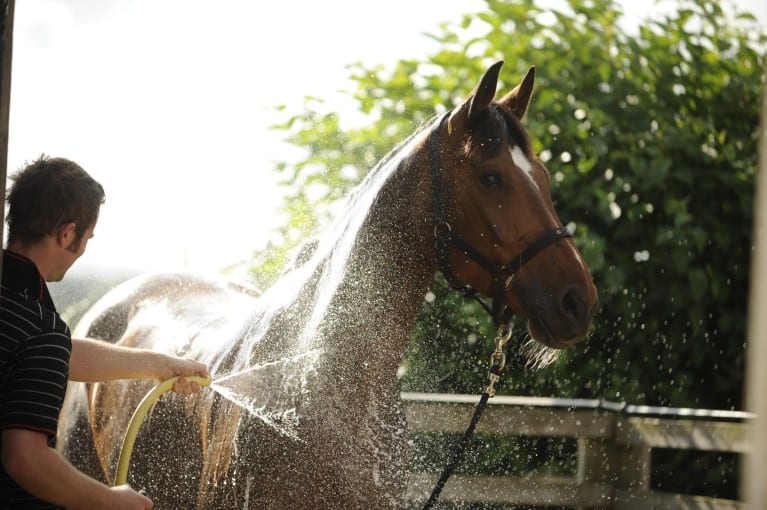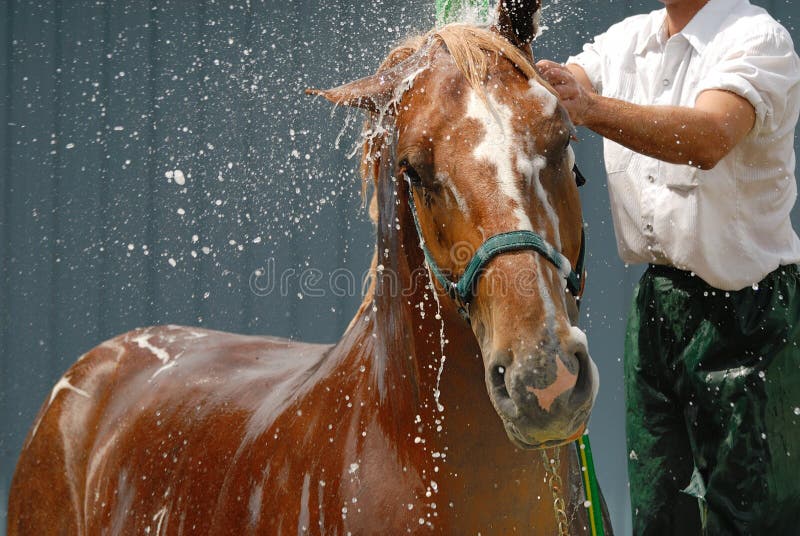Every horse owner knows the importance of keeping their equine companions clean and healthy. However, one common question that arises is how often should you shampoo a horse? Proper grooming not only enhances a horse’s appearance but also contributes to their overall well-being. Understanding the balance between cleanliness and natural oils is crucial for every equestrian enthusiast.
In this comprehensive guide, we will explore the intricacies of horse shampooing, ensuring your majestic friend remains in prime condition.

The Importance of Horse Grooming
Grooming is an essential aspect of horse care. It involves various practices that maintain your horse’s hygiene and health. Regular grooming helps in detecting potential health issues early, ensures the coat remains shiny, and strengthens the bond between you and your horse.
Understanding Horse Skin and Coat
A horse’s skin and coat are unique and require special attention. Unlike human skin, a horse’s skin produces natural oils that protect and nourish the coat. Over-shampooing can strip these oils, leading to dry skin and other complications.
Benefits of Using Horse Shampoo
Using the right horse shampoo can make a significant difference. It helps in removing dirt, sweat, and debris while maintaining the natural balance of oils. Additionally, it can prevent skin irritations and infections.
Choosing the Right Horse Shampoo
Not all shampoos are created equal. It’s vital to select a shampoo specifically designed for horses. For guidance on choosing the perfect product, check out Right Horse Shampoo.
Factors Influencing Shampoo Frequency
Several factors determine how often you should shampoo your horse. These include:
- Weather Conditions: In hot and humid climates, more frequent shampooing might be necessary.
- Activity Level: Horses involved in intense activities may require more frequent cleaning.
- Skin Sensitivity: Horses with sensitive skin should be shampooed less often to prevent irritation.
Seasonal Considerations
During different seasons, the frequency of shampooing may change. In winter, a horse might need fewer baths, while in summer, the need might increase due to heat and sweat.
Steps to Properly Shampoo a Horse
Before shampooing, ensure you have all necessary supplies ready. The process includes:
- Wet the entire coat thoroughly.
- Apply a suitable amount of shampoo and lather gently.
- Rinse thoroughly to remove all soap residues.
- Dry the coat using a clean towel or allow it to air dry.
Common Mistakes to Avoid
When shampooing, avoid these common pitfalls:
- Using human shampoo it can be harmful to horses.
- Failing to rinse thoroughly, which can lead to skin irritation.
- Shampooing too frequently, stripping essential oils.
Alternatives to Frequent Shampooing
If regular shampooing is not feasible, consider alternatives like spot cleaning or using a dry shampoo. For more tips on maintaining your horse’s coat, visit Dilute Horse Shampoo.
Feeding and Its Impact on Coat Health
A horse’s diet also plays a crucial role in maintaining a healthy coat. For insights on feeding schedules, explore Feeding Schedule.
Supplements for a Shiny Coat
Consider adding supplements like omega-3 fatty acids and biotin to promote a glossy coat. These nutrients support skin health and enhance coat quality.
FAQs
How often should I shampoo my horse in winter?
During winter, reduce shampooing frequency to retain natural oils and prevent the horse from getting too cold.
Can I use human shampoo on my horse?
No, human shampoo is not suitable for horses. Always use a product formulated specifically for equine use.
How do I know if my horse needs shampooing?
Look for signs like excessive dirt or a dull coat. If your horse seems itchy or uncomfortable, it might be time for a bath.

Conclusion
In conclusion, the question of how often should you shampoo a horse is not one-size-fits-all. By considering factors like climate, activity level, and skin sensitivity, you can create a grooming routine that keeps your horse healthy and happy. Remember, proper grooming is an ongoing process that requires attention and care. For more insights, visit Best Horse Shampoo.
This article contains affiliate links. We may earn a commission at no extra cost to you.








